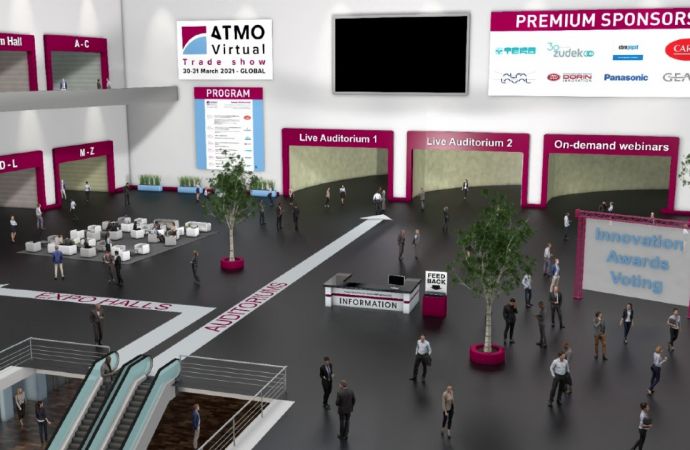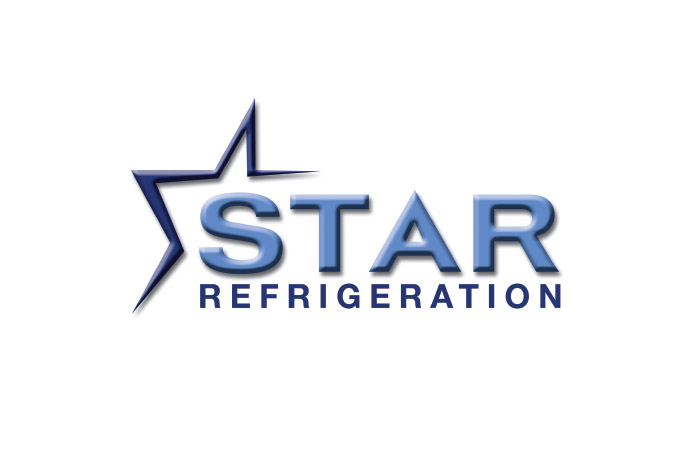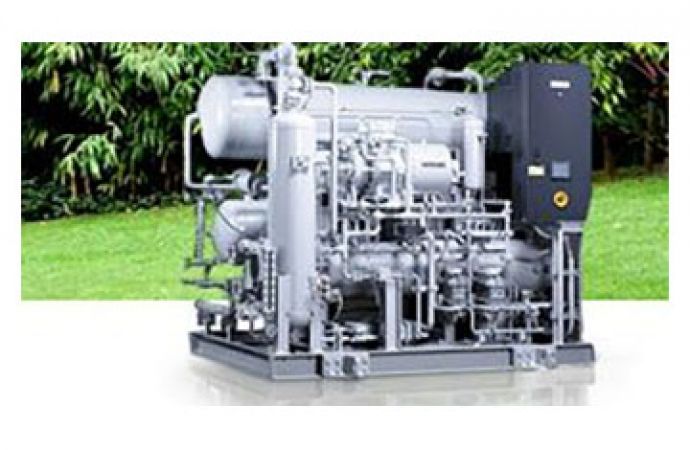The discussions at the 7th European Heat Pump Association (EHPA) Forum held on 20 May 2014 in Berlin focused on the role of heat pumps in reaching the energy efficiency and renewable energy targets in Europe by 2020 and beyond. Presentations by Mayekawa, Star Refrigeration and the University of Stuttgart drew attention to the large potential for heat pumps in industrial applications

The 7th EHPA Forum gathered around 120 participants representing industry, governments and universities. One of the messages that resonated during the event is the need for Member States to unveil the contribution heat pumps can make to reaching the EU’s renewable energy target by 2020, through the creation of favourable conditions for their deployment, such as flexible electricity tariffs or incentive schemes.
Large scale heat pump applications ideal for both heating and cooling
Whilst the discussions on heat pumps usually focus around the use of residential heat pumps, several presentations aimed to remind the audience that heat pumps are an efficient and established solution in large industrial applications, where they can reach capacities of several MW and provide temperatures of more than 100 °C.
According to Dr. Markus Blesl from the University of Stuttgart at least 18 industrial heat pump applications exist in Germany using waste heat to provide space heating or process heat in large scale applications such as waste treatment, the automotive, or chemical industry or metal processing. These heat pumps become especially economically feasible when both cooling and heating are considered.
Some of the current barriers to the wider uptake of heat pumps for industrial use are increasing electricity prices in Germany in combination with stable gas prices. A lack of knowledge regarding the potential deployment of heat pumps in industrial processes is also a problem.
Natural refrigerant industrial heat pumps provide environmental and financial benefits
Eric Delforge presented industrial heat pump case studies from Mayekawa, a world-leading supplier of industrial cooling and freezing systems, including heat pumps. Two ammonia industrial heat pumps with capacities of 1MW were installed at a milk factory to produce hot water at temperature of 90 °C.
A 2-stage ammonia heat pump system has been deployed to provide heating and hot water at the Badrutt’s Palace hotel in Switzerland, which uses the nearby lake as a heat source. This installation saves around 400,000 litres of fossil fuel per year and reduces the CO2 emissions by 1,200 tonnes per year. Moreover, with a COP of 3,19 the system delivers substantial financial benefits reducing the energy bill by 232,000 CHF (around €190,000) annually. Overall, the return on investment is estimated to be less than 2 years.
Another case study presented by Delforge depicted the use of hydrocarbon-based heat pump for supplying steam of up to 105 - 115 °C for a paper mill.
NH3 heat pumps for district heating
Dave Pearson of Star Refrigeration presented the case of the ammonia district heating system in the Norwegian city of Drammen, which achieves a COP of over 3. With the use of seawater as a source of heat, the 14MW heat pump provides heat increase up to 90 °C.
The project could be replicated in the UK and other countries, with Pearson pointing to the potential of rivers to be used as a heat source in similar district heating projects.
According to Pearson, there is a huge application potential for large application heat pumps, however, both end-user vision and government support are necessary to harness the benefits. Thanks to the Renewable Heat Incentive (RHI) run by the UK government, which provides long-term financial support for the use of renewable heat, heat pumps can produce heat at 1/8 of the cost of a gas boiler.
About the EHPA
The European Heat Pump Association was established in 2000 to promote awareness and proper deployment of heat pump technology in the European market place. The EHPA promotes heat pumps in residential, commercial and industrial applications by providing technical and economic input to European, national and local authorities.
Large scale heat pump applications ideal for both heating and cooling
Whilst the discussions on heat pumps usually focus around the use of residential heat pumps, several presentations aimed to remind the audience that heat pumps are an efficient and established solution in large industrial applications, where they can reach capacities of several MW and provide temperatures of more than 100 °C.
According to Dr. Markus Blesl from the University of Stuttgart at least 18 industrial heat pump applications exist in Germany using waste heat to provide space heating or process heat in large scale applications such as waste treatment, the automotive, or chemical industry or metal processing. These heat pumps become especially economically feasible when both cooling and heating are considered.
Some of the current barriers to the wider uptake of heat pumps for industrial use are increasing electricity prices in Germany in combination with stable gas prices. A lack of knowledge regarding the potential deployment of heat pumps in industrial processes is also a problem.
Natural refrigerant industrial heat pumps provide environmental and financial benefits
Eric Delforge presented industrial heat pump case studies from Mayekawa, a world-leading supplier of industrial cooling and freezing systems, including heat pumps. Two ammonia industrial heat pumps with capacities of 1MW were installed at a milk factory to produce hot water at temperature of 90 °C.
A 2-stage ammonia heat pump system has been deployed to provide heating and hot water at the Badrutt’s Palace hotel in Switzerland, which uses the nearby lake as a heat source. This installation saves around 400,000 litres of fossil fuel per year and reduces the CO2 emissions by 1,200 tonnes per year. Moreover, with a COP of 3,19 the system delivers substantial financial benefits reducing the energy bill by 232,000 CHF (around €190,000) annually. Overall, the return on investment is estimated to be less than 2 years.
Another case study presented by Delforge depicted the use of hydrocarbon-based heat pump for supplying steam of up to 105 - 115 °C for a paper mill.
NH3 heat pumps for district heating
Dave Pearson of Star Refrigeration presented the case of the ammonia district heating system in the Norwegian city of Drammen, which achieves a COP of over 3. With the use of seawater as a source of heat, the 14MW heat pump provides heat increase up to 90 °C.
The project could be replicated in the UK and other countries, with Pearson pointing to the potential of rivers to be used as a heat source in similar district heating projects.
According to Pearson, there is a huge application potential for large application heat pumps, however, both end-user vision and government support are necessary to harness the benefits. Thanks to the Renewable Heat Incentive (RHI) run by the UK government, which provides long-term financial support for the use of renewable heat, heat pumps can produce heat at 1/8 of the cost of a gas boiler.
About the EHPA
The European Heat Pump Association was established in 2000 to promote awareness and proper deployment of heat pump technology in the European market place. The EHPA promotes heat pumps in residential, commercial and industrial applications by providing technical and economic input to European, national and local authorities.
MORE INFORMATION
Related stories






